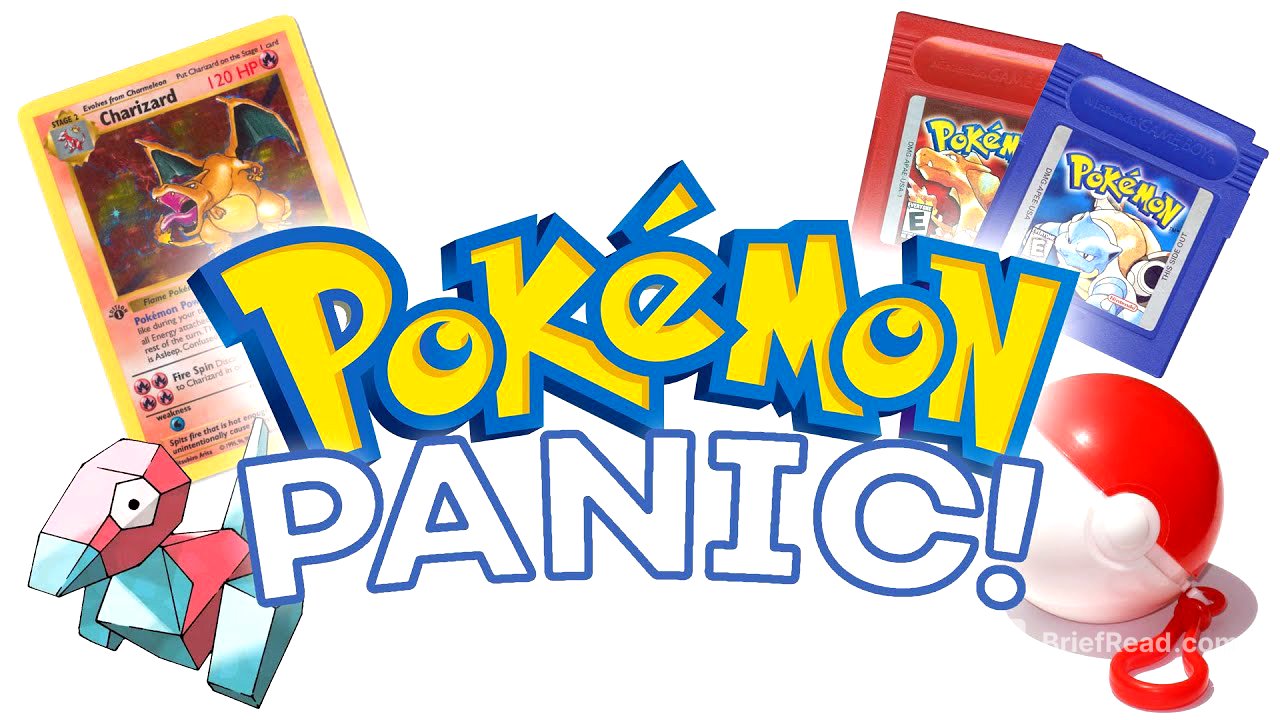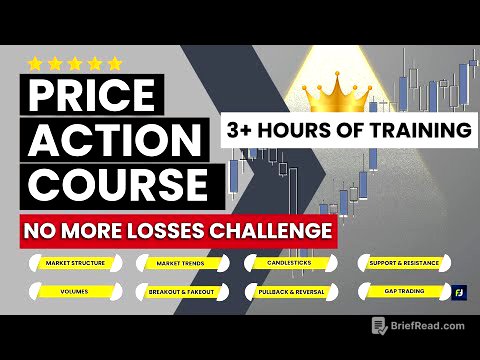TLDR;
This video explores the history of "Pokémon Panic," detailing the various controversies and moral panics that have surrounded the Pokémon franchise since its inception. It covers incidents ranging from the infamous Porygon episode that caused seizures in viewers, to concerns about the trading card game being a form of gambling, criticisms of the battling aspect promoting violence, and religious objections to the series' themes. The video also touches on more recent controversies, such as those surrounding Pokémon Go, and concludes with a humorous take on some of the darker aspects of the Pokémon world.
- The "Porygon" episode caused seizures in hundreds of Japanese children due to rapidly flashing lights.
- The Pokémon Trading Card Game was accused of promoting gambling among children.
- Religious groups criticized Pokémon for promoting themes contrary to their beliefs, including evolution and the occult.
- Pokémon Go sparked safety concerns due to players engaging with the game in dangerous locations.
Intro [0:00]
The Pokémon franchise, which began in 1996 with the release of Pokémon Red and Green for the Game Boy, has become the highest-grossing media franchise of all time. Despite its current status as a pop culture juggernaut, Pokémon faced numerous controversies and moral panics in its early years, causing concern among parents and the media.
The Porygon Episode [1:09]
In December 1997, the Pokémon anime aired its 38th episode, "Computer Warrior Porygon," in Japan. The episode featured a sequence of rapidly flashing red and blue lights during an electric attack by Pikachu, which caused over 700 viewers to suffer from symptoms such as seizures, vomiting, and eye irritation. As a result, 685 children were affected, Nintendo's shares dropped, and the anime was put on hiatus for four months. The episode has never been aired again. The incident brought international attention to Pokémon, though not in a positive light.
Trading Card Game Panic [3:21]
The Pokémon Trading Card Game, released shortly after the video games and anime, became a subject of concern for school teachers and parents. Children were getting emotional over losing valuable cards, and in September 1999, two mothers filed a lawsuit against Nintendo of America, claiming that the card game was a form of gambling. The lawsuit argued that buying packs of cards in the hopes of getting rare cards like Dragonite was similar to playing the lottery. Schools banned Pokémon cards due to disruptions and negative impacts on friendships. A first edition Charizard holographic card from 1999 can be worth up to $300,000.
Core Concept Debate [5:54]
The core concept of Pokémon, where players capture, train, and battle monsters, also sparked debate. Some critics, including a writer for the L.A. Times, compared the battles to illegal animal fighting. Others described the matches as a mix of professional wrestling and fighting.
The First Movie [6:52]
The release of "Pokémon: The First Movie" in American theaters in late 1999 was covered by primetime news. An MSNBC segment called "Pokemania" featured a child psychologist who advised parents to keep their children away from the franchise, claiming its message was violence. The film's release led to many children skipping school, resulting in the phenomenon being dubbed "the pokeflu." Burger King's Pokémon promotion, which involved distributing pokeball-themed toys, led to a recall after several children suffocated due to a design flaw in the toys.
Religious Concerns [9:04]
Various religious groups criticized Pokémon, with some claiming that the pocket monsters were akin to demons. Other concerns included the game promoting Darwin's theory of evolution and the game's portrayal of ghosts and channelers. Some even objected to the game due to its Japanese origins. The Pope John Paul II assured followers that Pokémon was not harmful and that the game was built around friendship.
PETA's Parody Game [11:59]
In 2012, PETA released "Pokémon Black and Blue," a parody game criticizing Nintendo for the way Pokémon are treated in the games. PETA argued that trainers battling Pokémon was tantamount to animal abuse. However, the creators of the parody game seemed unaware that the theme of Pokémon Black and White and its sequels was the moral ambiguity around capturing and battling Pokémon.
Pokémon Go Panic [14:08]
Pokémon Go, one of the most famous mobile games of all time, also sparked panic. People were warned to stop playing the game near railroad tracks or while driving. Two men fell off a cliff while distracted by the game, and a woman was killed in Japan by a driver who was too focused on Pokémon Go. The Holocaust Museum in Washington D.C. requested the removal of PokeStops from its premises. A town in Belgium banned groups of 10 or more people in certain areas due to the noise and parking issues caused by Pokémon Go players.
Conclusion [15:40]
Pokémon has inspired various forms of panic over the years. In some cases, such as the anime episode that caused seizures and the Burger King toy recall, the concerns led to positive changes in animation safety standards and toy design. The video concludes with a humorous take on the darker aspects of the Pokémon world, such as the implications of children being sent out on their own to catch potentially dangerous creatures and the unsettling backstories of certain Pokémon.









